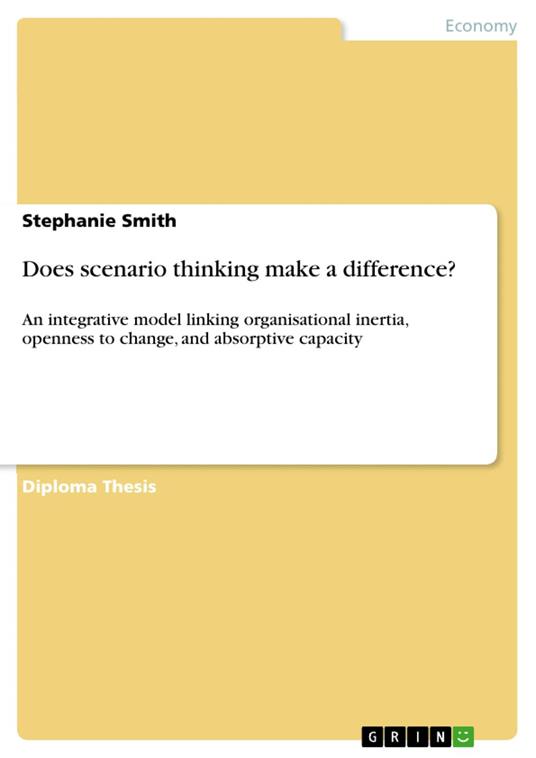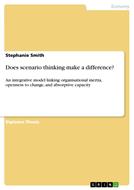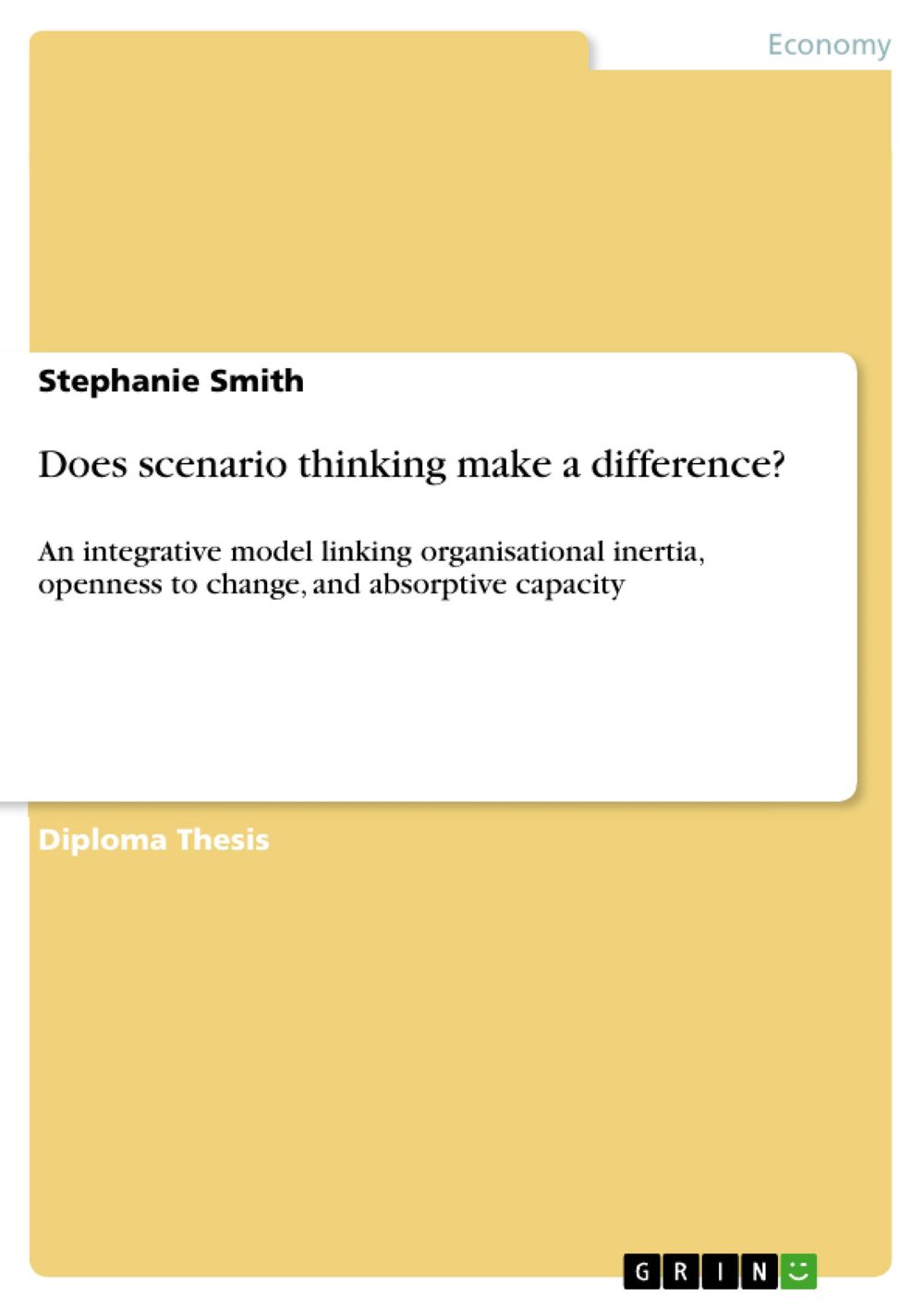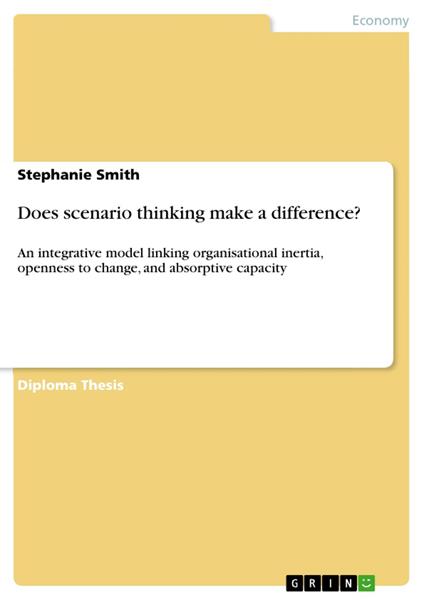Does scenario thinking make a difference?
Diploma Thesis from the year 2011 in the subject Business economics - Business Management, Corporate Governance, grade: 1,0, University of Mannheim, language: English, abstract: Change has become an inevitable part of business life. Although this is an acknowledged fact and companies are aware of its importance, managing change as well as assuring flexibility is a complex undertaking, often unsuccessfully conducted (Bacon et al., 2010; Clegg et al., 1997; Gibbs, 1997; Holman et al., 2000; IBM, 2004;Landauer, 1995; Lassen & Nielsen, 2009; Levasseur, 2010; Willcocks & Grint, 1997). The questions subject to this thesis are: How can the individual’s attitude towards change be altered? Does thinking in scenarios contribute to gaining a higher degree of openness to change? Does enhanced openness to change find expression in the individuals’ attitude towards new information? And do individuals, who experience an increased individual absorptive capacity, positively evaluate the effectiveness of practices that support the development of the capability to appreciate new information? Since it represents a conceptual piece of work, propositions will constitute the results. However, a method to test the validation of the presented propositions is suggested, which provides a starting point to engage in future empirical investigations. The structure is the following: First, a theoretical background of organisational inertia (section 2.1), absorptive capacity (section 2.2), and scenario planning (section 2.3) is given. Subsequently, the introduced deliberations on these theories are utilised to derive propositions that are unique and new in their nature (section 3.1). Furthermore, a possible method is suggested to test the model and to find support for the built up propositions (section 3.2). In chapter 4 the results, i.e. the propositions, as well as their contribution to theoretical understandings within the scope of the research field change,limitations of this work, and managerial implications are discussed. The conclusion (chapter 5) will finalise this thesis.
-
Autore:
-
Anno edizione:2011
-
Editore:
-
Formato:
-
Lingua:Inglese
Formato:
Gli eBook venduti da Feltrinelli.it sono in formato ePub e possono essere protetti da Adobe DRM. In caso di download di un file protetto da DRM si otterrà un file in formato .acs, (Adobe Content Server Message), che dovrà essere aperto tramite Adobe Digital Editions e autorizzato tramite un account Adobe, prima di poter essere letto su pc o trasferito su dispositivi compatibili.
Cloud:
Gli eBook venduti da Feltrinelli.it sono sincronizzati automaticamente su tutti i client di lettura Kobo successivamente all’acquisto. Grazie al Cloud Kobo i progressi di lettura, le note, le evidenziazioni vengono salvati e sincronizzati automaticamente su tutti i dispositivi e le APP di lettura Kobo utilizzati per la lettura.
Clicca qui per sapere come scaricare gli ebook utilizzando un pc con sistema operativo Windows



